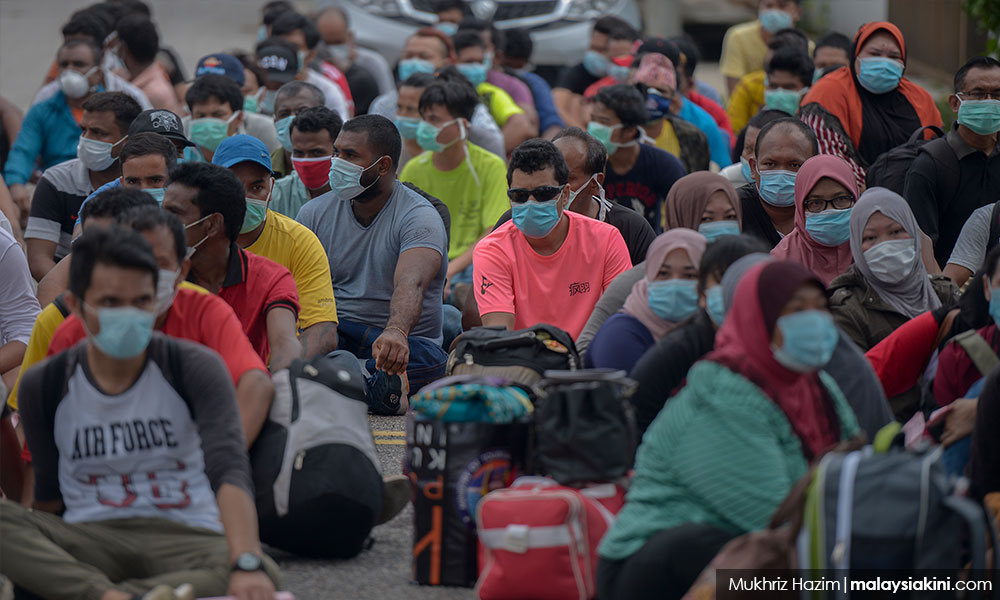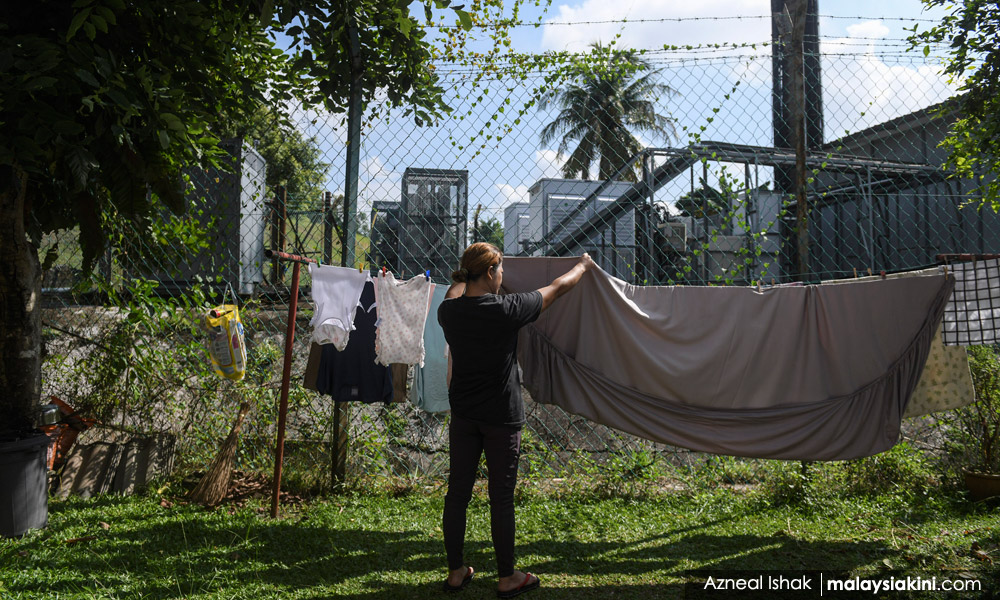Indonesia has intensified enforcement to combat human trafficking and end labour violations against its citizens employed in Malaysia, calling on the country to assist in crackdown efforts.
Since early June, Indonesia’s police investigated 705 cases related to trafficking and illegal transportation, including the smuggling of individuals by sea and air.
“Some 999 individuals have already been charged with trafficking and smuggling of persons.
“In Indonesia, we have stepped up efforts to stifle trafficking activities but we also need cooperation from Malaysia to raise awareness among employers about the ramifications of employing undocumented migrant workers.
“We hope to see stricter punishments meted swiftly to errant employers,” said Indonesia’s Ambassador to Malaysia Hermono, who goes by one name.
Emphasising his concern, Hermono (above) hoped labour violations against Indonesian workers would not strain bilateral relations between the two countries due to the lack of substantial progress in addressing these persistent issues.
Abuse of domestic workers
In response to recent calls from Immigration director-general Ruslin Jusoh for specific complaints regarding the abuse of Indonesian workers to be lodged with his department, Hermono said he would comply.
“I appreciate the swift response of the Immigration Department director-general to address the long-standing issue of the poor treatment of our domestic workers in the country.
“His interest in the issue gives us hope for a comprehensive solution, as Indonesia consistently prioritises the protection of our workers in our relations with Malaysia,” Hermono said.

Ruslin had asked for an official report from the embassy after Hermono reportedly lamented that undocumented workers made up 90 percent of labour violation cases the embassy received across all sectors.
Ruslin also pledged to take action under the Immigration Act 1959/63 which criminalises foreign nationals living in Malaysia without a valid pass or permit.
The act criminalises the employment of undocumented migrant workers as well.
Hermono hoped that the courts would also give more importance to forced labour cases as they took many years to resolve.
Millions in unpaid wages
Hermono said Malaysian employers preferred to hire undocumented workers because they were easier to exploit, cheaper, and faster to hire.
“What’s more disturbing is that many of the forced labour cases the embassy investigated involved wealthy or highly educated employers,” he added.

The embassy has recouped RM6.7 million in unpaid wages from 374 errant employers of domestic workers since 2021. and is still recouping RM796,225 in unpaid wages.
“'This is just the tip of the iceberg of what is actually owed to workers.
“Many workers were unable to report the abuse, some employers couldn’t be located, and others either refused to pay or expressed a desire to negotiate down the actual amount owed,” Hermono said.
The recovery of unpaid wages for domestic workers was an uphill task especially because many of the workers were undocumented.
Hermono said there were 133 women remaining in the embassy’s shelter in Kuala Lumpur and only seven were documented.
Victims further victimised
Hermono maintained that even if the unpaid wages were paid by the employers, they still committed the crime of forced labour and action should be taken against them.
Migrant workers in Malaysia have no control over their immigration status.
This is because getting or renewing work permits can only be done through an employer vouching that there are jobs available for the migrant worker, or that they are already employed.

The exploitation of undocumented workers by offering them lower wages - or not paying them at all - is a disturbing allure for employers to maintain the workers’ undocumented status.
However, Hermono feels that victims of forced labour are further victimised by the law.
“The ones who are solely responsible for a migrant worker to be documented are the employers but the Immigration Act holds both employers and employees culpable.
“This makes it hard for us or the worker to file a complaint about their employment in an undocumented status because the workers are scared they would be detained,” he said.
Based on interviews, Hermono said workers are initially promised work permits upon arrival but they never receive the necessary legal documentation.
Additionally, when their work permits expire, they face the issue of non-renewal. - Mkini




No comments:
Post a Comment
Note: Only a member of this blog may post a comment.